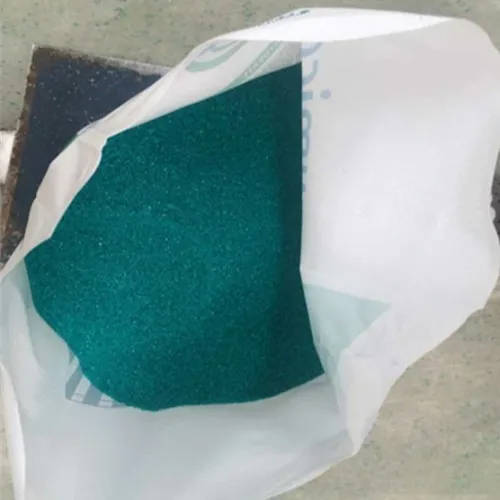Warning: Undefined array key "title" in /home/www/wwwroot/HTML/www.exportstart.com/wp-content/themes/1198/header.php on line 6
Warning: Undefined array key "file" in /home/www/wwwroot/HTML/www.exportstart.com/wp-content/themes/1198/header.php on line 7
Warning: Undefined array key "title" in /home/www/wwwroot/HTML/www.exportstart.com/wp-content/themes/1198/header.php on line 7
Warning: Undefined array key "title" in /home/www/wwwroot/HTML/www.exportstart.com/wp-content/themes/1198/header.php on line 7
- Afrikaans
- Albanian
- Amharic
- Arabic
- Armenian
- Azerbaijani
- Basque
- Belarusian
- Bengali
- Bosnian
- Bulgarian
- Catalan
- Cebuano
- China
- China (Taiwan)
- Corsican
- Croatian
- Czech
- Danish
- Dutch
- English
- Esperanto
- Estonian
- Finnish
- French
- Frisian
- Galician
- Georgian
- German
- Greek
- Gujarati
- Haitian Creole
- hausa
- hawaiian
- Hebrew
- Hindi
- Miao
- Hungarian
- Icelandic
- igbo
- Indonesian
- irish
- Italian
- Japanese
- Javanese
- Kannada
- kazakh
- Khmer
- Rwandese
- Korean
- Kurdish
- Kyrgyz
- Lao
- Latin
- Latvian
- Lithuanian
- Luxembourgish
- Macedonian
- Malgashi
- Malay
- Malayalam
- Maltese
- Maori
- Marathi
- Mongolian
- Myanmar
- Nepali
- Norwegian
- Norwegian
- Occitan
- Pashto
- Persian
- Polish
- Portuguese
- Punjabi
- Romanian
- Russian
- Samoan
- Scottish Gaelic
- Serbian
- Sesotho
- Shona
- Sindhi
- Sinhala
- Slovak
- Slovenian
- Somali
- Spanish
- Sundanese
- Swahili
- Swedish
- Tagalog
- Tajik
- Tamil
- Tatar
- Telugu
- Thai
- Turkish
- Turkmen
- Ukrainian
- Urdu
- Uighur
- Uzbek
- Vietnamese
- Welsh
- Bantu
- Yiddish
- Yoruba
- Zulu
Oct . 12, 2024 09:31 Back to list
Exploring the Benefits and Uses of Propylene Glycol in Cough Syrups
Propylene Glycol Cough Syrup An Overview
Cough syrup is a staple of the modern medicine cabinet, commonly used to relieve coughs that accompany colds, flu, and other respiratory conditions. Among the various ingredients found in these formulations, propylene glycol is a noteworthy compound due to its multifaceted role in medicinal products. This article delves into the characteristics of propylene glycol, its uses in cough syrup, and its safety profile.
What is Propylene Glycol?
Propylene glycol is a colorless, odorless liquid that is hygroscopic, meaning it can absorb moisture from the air. Chemically, it is a predominant glycol, which is a type of alcohol. Its properties of being non-toxic, low in volatility, and highly soluble in water have made it a popular choice in the food, pharmaceutical, and cosmetic industries. In the realm of pharmaceuticals, propylene glycol serves multiple functions. It is often utilized as a solvent for oral, injectable, and topical formulations.
Role of Propylene Glycol in Cough Syrup
In cough syrup formulations, propylene glycol performs several vital functions. Firstly, it acts as a solvent, allowing for the effective dissolution of active ingredients such as dextromethorphan and guaifenesin. These components are responsible for suppressing cough and loosening mucus, respectively. Without propylene glycol, the stability and efficacy of these active ingredients may be compromised.
Secondly, propylene glycol contributes to the syrup's consistency and texture. It enhances the mouthfeel of the product, making it easier for patients, particularly children, to swallow. The syrup's viscosity is crucial in ensuring that it adheres to the throat and provides prolonged relief from irritation.
Additionally, propylene glycol has antimicrobial properties, which can help to prolong the shelf life of cough syrups by preventing microbial growth. This aspect is particularly important in ensuring the safety and efficacy of medicinal products over time.
propylene glycol cough syrup

Safety Profile
The safety of propylene glycol has been extensively studied, and it is generally recognized as safe (GRAS) when used in appropriate amounts. The U.S. Food and Drug Administration (FDA) has approved its use in food and pharmaceuticals, reinforcing its status as a safe ingredient. However, like any other compound, propylene glycol may pose risks if consumed in excessive amounts.
Adverse effects from propylene glycol are rare but can occur, particularly in individuals with certain health conditions. For instance, high doses may lead to metabolic acidosis, especially in people with compromised kidney function, as their bodies are less able to eliminate the compound. Moreover, while allergies to propylene glycol are uncommon, some individuals may experience localized skin reactions or gastrointestinal irritation.
It is important to note that formulations containing propylene glycol may not be suitable for everyone, particularly for those who have allergies or sensitivities to this compound. Patients should consult a healthcare professional before using any cough syrup containing propylene glycol, especially if they are pregnant, nursing, or taking other medications.
Conclusion
Propylene glycol is an important component in many cough syrups, serving as a solvent, stabilizer, and texture enhancer. Its widespread acceptance and regulatory approval underscore its significance in pharmaceutical formulations. When used responsibly and in the right contexts, propylene glycol is a safe and effective ingredient that plays a crucial role in alleviating cough symptoms and improving patient comfort.
As with any medication, it is essential to follow dosage recommendations and consult healthcare providers regarding any concerns about specific ingredients. By understanding the properties and roles of ingredients like propylene glycol, patients can make more informed choices about their health and wellness. Whether it is a minor cough or a more serious respiratory issue, the right cough syrup can provide relief, with propylene glycol contributing to its effectiveness.
Latest news
-
Certifications for Vegetarian and Xanthan Gum Vegetarian
NewsJun.17,2025
-
Sustainability Trends Reshaping the SLES N70 Market
NewsJun.17,2025
-
Propylene Glycol Use in Vaccines: Balancing Function and Perception
NewsJun.17,2025
-
Petroleum Jelly in Skincare: Balancing Benefits and Backlash
NewsJun.17,2025
-
Energy Price Volatility and Ripple Effect on Caprolactam Markets
NewsJun.17,2025
-
Spectroscopic Techniques for Adipic Acid Molecular Weight
NewsJun.17,2025

